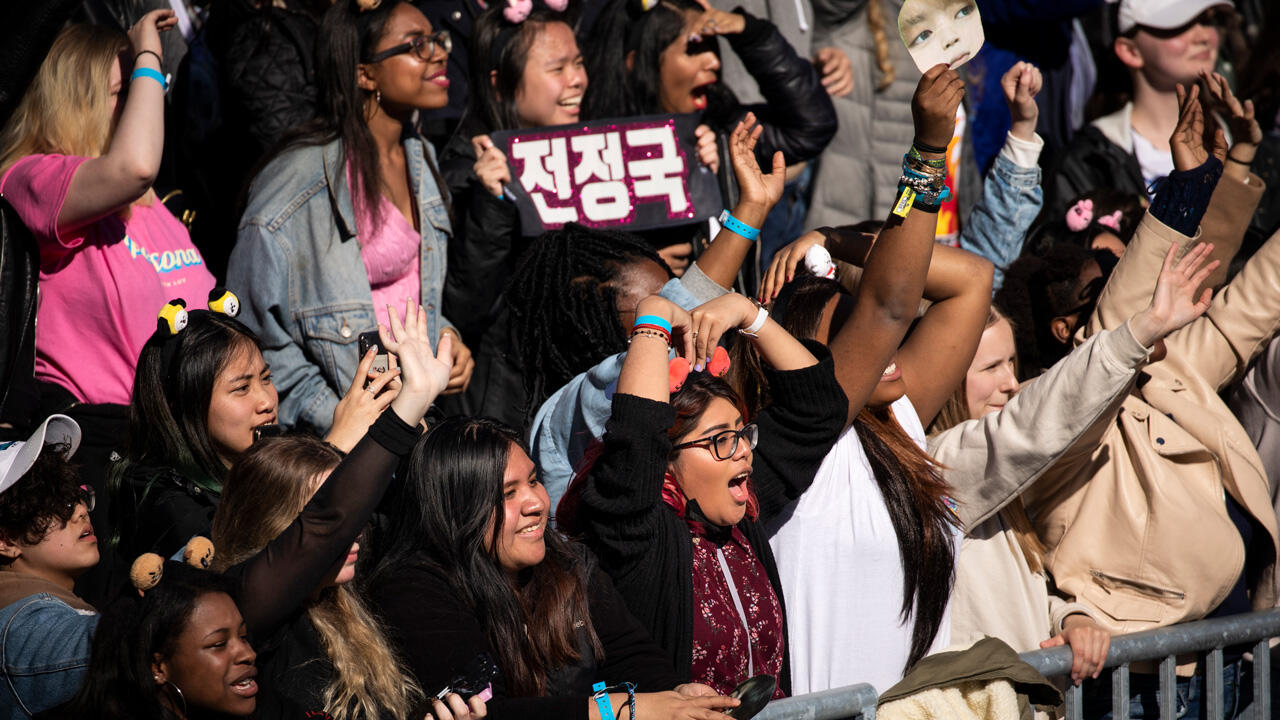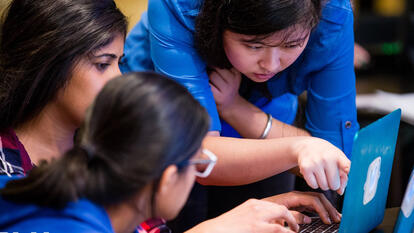
K-pop “Stans,” Long Famous for Obsessive Online Music Fandom, Turn Toward Political Activism
As President Donald Trump prepared for his July 11 campaign rally in the run-up to the November presidential election, this time in Portsmouth, New Hampshire, K-pop stans were at it again, hoping to create a repeat of the recent scene at the president’s rally in Tulsa on June 20, when thousands created fake registrations, signing up for tickets they didn’t plan to use, throwing planning for the event into chaos and inflating the Trump campaign’s expectations for what turned out to be a smaller-than-expected crowd.
This summer, the young and diverse cohort of international enthusiasts of Korean popular music (K-pop), long known to coordinate across social media platforms to ensure their favorite groups are trending topics, are increasingly turning their sights toward activism in American politics. Recently, K-pop fans from all over the world disrupted a Dallas police app seeking intelligence on Black Lives Matter protesters; swamped would-be white supremacist hashtags on Twitter with irreverent videos, memes, and other posts; spammed a birthday card for President Trump; and matched a million dollar donation from the popular band BTS for various Black Lives Matter groups across the United States.
“Digital activism by K-pop stans is a relatively new phenomenon,” said Sun-Hee Lee, associate professor of Korean. “These international K-pop stans include young fans who are passionate about social justice activism. Amid the Black Lives Matter protests around the globe, K-pop fans share frustration and dissatisfaction against systematic racism and the current political mechanism dealing with these issues.”
“One thing that I would like people to understand is that our activism isn’t a joke or a prank. When politicians and media outlets label us kids, it negates how serious we are.”
ashley amoabeng ’21
Although it is true that the digital political activism on display from this community is relatively new, it is serious and fervent. ashley amoabeng ’21, who spent the Fall 2019 semester abroad in South Korea, became a fan of the genre in 2017 and has since become enmeshed in the digital activism its fans display. “One thing that I would like people to understand is that our activism isn’t a joke or a prank,” amoabeng said. “When politicians and media outlets label us kids, it negates how serious we are.”
amoabeng expressed frustration at the often monolithic descriptions of the communities involved in such activism. “K-pop stans come in various different ages, races, ethnicities, and sexualities,” she said. “And in terms of social media, there’s also niche ‘personality’ traits that each platform is known for. For example, a Twitter K-pop stan is different from an Instagram stan or a Facebook stan or the newly formed Tiktok K-pop stan.”
“The growing communities of K-pop around the globe are locally situated in spite of their universal representation in the media,” Lee said. “These specific local identities need to be studied and better represented in media in addition to their multicultural, cosmopolitan, and transnational identity.”
“The sheer size of such fandom has the numbers to crash every hashtag on Twitter, if they choose to do so.”
Eni Mustafaraj, assistant professor of computer science
The stans’ turn to digital activism shows no sign of slowing down. “The current moment belongs to the K-pop fandom, which is bigger than any previous fandom because it’s an umbrella term for many popular groups and artists from South Korea with international appeal,” said Eni Mustafaraj, assistant professor of computer science. “The sheer size of such fandom has the numbers to crash every hashtag on Twitter, if they choose to do so. Online fandoms have a strength in numbers that is mostly unmatched by any other online group. Their emotional connection to the celebrities they worship is regarded by researchers as a form of parareligion that has developed strong communal bonds within each fandom.”
Lee noted there is a difference between the online activism in international K-pop communities and online activism in South Korea. “The current activism of K-pop stans is not similar to online activism in South Korea,” Lee said. “There, online communities led by netizens have been the major driving force for social justice activism through the internet since the early 2000s. Yet it is uncommon for K-pop fans in South Korea to mobilize for sociopolitical issues in other countries.” Lee is quick to note that this dynamic may be changing, in part because of this current spate of digital activism in the American political arena. “The impact of the current online social activism in North America has been transforming the K-pop communities in the world, including South Korea,” Lee said.
While K-pop stans have become famous in recent weeks for their online organizing around Black Lives Matter protests and praised by many for drowning out racist hashtags online, the K-pop industry has struggled with its own incidents of colorism and racism.
Such incidents haven’t necessarily dampened K-pop stans’ enthusiasm to engage in activism. When these incidents occur, amoabeng explained, it’s important to highlight them and push for change.
“Sometimes stans would rather protect their favorite groups by pretending the incident never occurred,” amoabeng said. “At the end of the day, it not only invalidates people in the fandom who are rightfully offended, but it also prevents artists from learning.” amoabeng noted, however, that it is a good thing for K-pop stans to push for growth and educate their favorite artists when they commit an act of cultural appropriation, and said that though some flexibility on behalf of fans is necessary to allow for that conversation, there is a point at which educating isn’t enough.
“When the artists are continuously engaging in cultural appropriation, colorism, and homophobia,” amoabeng said, “I stop being a fan, whether it’s K-pop or any other genre of music.”



